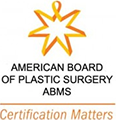Skin Care Series Part II: My Thoughts on the “Not So Good” & “Bad”
March 28, 2014
Atlanta laser treatments, Atlanta plastic surgeon, Atlanta skin care, Atlanta skin care tips, chemical peels in Atlanta ga, laser treatments Atlanta ga, Rapid City chemical peels, Rapid City collagen booster, Rapid City cosmetic surgery, skin care treatments Atlanta ga
Similar to reading labels on the food we consume, it is important to look beyond the superficial ingredients of any skin care regimen to better understand the benefits and potential harm. In the previous blog on this site, I shared my thoughts on the good side of skin care and some of the key components to help you maintain healthy, radiant skin. With many of today’s products, we are bombarded with claims of dramatic results from “revolutionary” technology. In reality, many of these claims are purely theoretical and often have little to no clinically proven results. In the second part of this series I discuss my thoughts on the “not so good” and the “bad” claims of products that you should consider skipping on your next trip down the skin care aisle.
The “Not So Good”
Vitamin E: Much like Vitamin C, Vitamin E is a potent anti-oxidant, skin lightener and moisturizer. In the lab, Vitamin E has proven an active collagen remodeler that might help in smoothing thick scars. Unfortunately, in our clinical experience topical Vitamin E has not been shown to improve scarring; the serum is extremely oily and can actually lead to acne breakouts.
My recommendation: if you’re going to buy a product with an active form of vitamin E, look for one that has tocopherol; however, I highly recommend Vitamin C over Vitamin E for all skin care regimens.
Collagen and PSP®: Topical collagen and processed skin cell proteins (PSP®) are touted to bolster dermal collagen and plump up your skin. It is true that the deep layer of skin responsible for structure and tightness is composed of collagen, elastin and other proteins; however, the outer layers of skin are designed to prevent these large compounds from leaking out. By the same measure, the outer layer of skin prevents the penetration of any large product placed topically. Collagen and proteins are simply too large to penetrate the skin.
The cosmeceutical industry understands this and has developed peptide and penta-peptide formulas, the new buzz words in skin care products if you will. Peptides are small fragments of a larger protein or collagen fiber that can be absorbed into the skin. The idea behind PSP® is that the peptides act as agents to breakdown collagen and protein, which will trigger your body into repair mode and stimulate new collagen and elastin production. Unfortunately, there is no data to support this theoretical claim.
My recommendation: save your $100 a month and consider a chemical peel or laser treatment.
The “Bad”
Gold Infused Nano-particle Creams: In my opinion, these products are a complete scam. Everyone loves gold, and we all like high-tech names like nano-particle (a fancy term for tiny particles). For example, one such product combines gold particles with silk to produce an “anti-inflammatory, detoxifying, healing and preserving” cream. Unfortunately, gold was named the 2002 American Contact Dermatitis Society’s allergen of the year and silk is a well-known inflammatory enabler.
My recommendation: unless you want to develop a severe rash for the low price of $420 a bottle, avoid such creams.
Stem Cells: Stem cells will be the source of medicinal cures in the distant future but are the hollow promise of many companies today. We do know that our adult bodies are full of regenerative cells that can be harnessed for cures; however, the science has not caught up with the marketing promises. Most stem cell creams on the market take a mixture of your natural signaling molecules and plasma from around harvested stem cells (not the stem cells themselves) that are mixed into a standard moisturizer. These cell messengers are then applied to the skin with the promise of causing your own skin stem cells to react and rejuvenate. The theory behind this is sound, but not proven.
My recommendation: stick to anti-oxidants as they work by binding to and removing toxic waste products from your skin. Damage from UV radiation, smoking and general aging cause the breakdown of skin and in turn release free radicals (molecules with too many electrons attached). Anti-oxidants absorb these free electrons and convert them back to a normal, non-harmful waste product.
If you are interested in finding a skin care treatment that is right for you or a cosmetic procedure I perform, please don’t hesitate to contact us. Stay connected with me, Dr. Hunter Moyer, on Facebook, Twitter and Google+ for more updates and news on skin care and plastic surgery.









